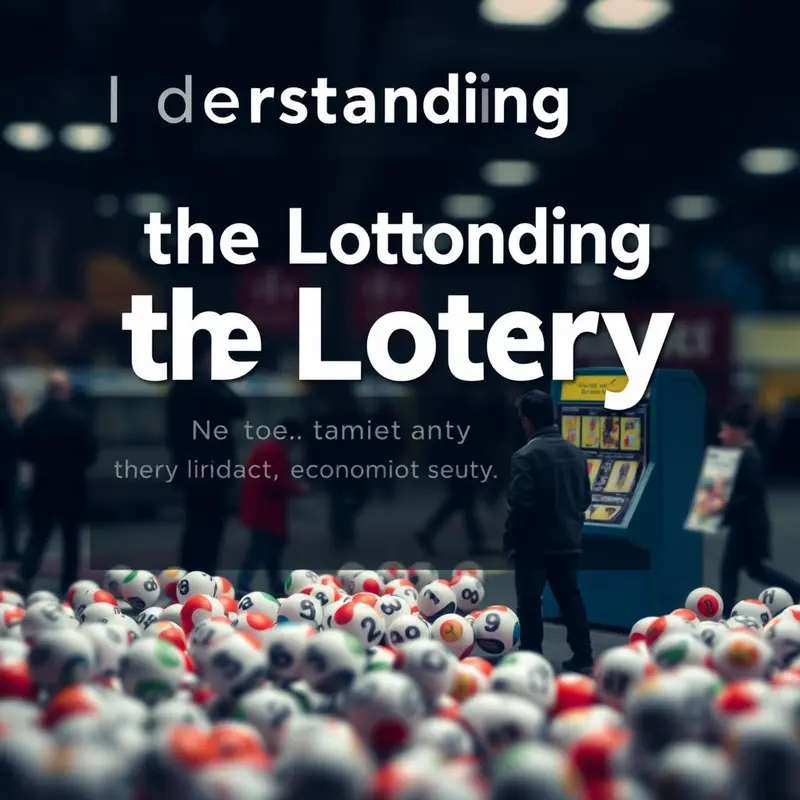The lottery stands as one of the most popular games of chance worldwide, engaging millions of players through diverse formats and significant jackpot prizes. Rooted in tradition yet evolving with technology, lotteries offer a compelling blend of excitement and opportunity. Exploring the core mechanisms behind lottery games reveals the distinct formats—draw games, scratch-offs, and online instant games—that define how players engage and win. Beyond gameplay, lotteries hold profound social and economic significance, funding public projects and fostering a culture of responsible play. This dual perspective offers players not only insight into how the lottery operates but also its wider contributions and responsibilities within communities, enhancing both enjoyment and awareness.
Understanding Lottery Games: How Types and Mechanics Shape Your Chances
The world of lottery is vast, with many exciting game formats that cater to a wide array of players seeking a chance to win sizeable prizes. At its core, a lottery is a game of chance where participants purchase tickets for an opportunity to match numbers or reveal symbols that translate into cash rewards. These games are typically operated by state or national agencies, ensuring a regulated environment that balances entertainment with public accountability.
Among the most popular and widely recognized lottery formats are the draw games. These include multi-state or national draws such as Powerball and Mega Millions, where players select sets of numbers within specified ranges. For example, Powerball requires choosing five numbers from one to sixty-nine plus an additional “Powerball” number from one to twenty-six. A ticket costs $2, and prizes range from small amounts for partial matches to jackpots that can soar into hundreds of millions of dollars. Similarly, Mega Millions follows closely with slightly different number pools and prize structures but the same underlying mechanics of matching numbers drawn at scheduled times. These draws, often conducted with mechanical balls or certified random number generators, happen multiple times a week, providing frequent opportunities for hopeful winners.
In addition to these national draws, there are lottery games like Fantasy 5 or Cash4Life that appeal with their distinct odds and prize formats. Fantasy 5 requires players to pick five numbers from one to forty-two, offering a starting jackpot of $125,000 that increases when not won. Cash4Life presents a unique prize, awarding the winner $365,000 every year for life or, alternatively, a lump-sum payout. The mechanics are similar—players select numbers including a special “Cash Ball”—and the odds reflect the varying prize structures, often more favorable than the large multi-state draws.
For players aiming to improve their chances within the confines of lottery probabilities, system entries provide an interesting option. Unlike a traditional single-entry ticket where you pick the standard number set, system entries allow the selection of more numbers than usual—say eight or nine instead of six for a game like Powerball—and automatically generate all possible combinations within that selection. While this significantly increases the number of combinations covered and thus the chance to win, it also raises the ticket cost proportionally, making it a strategic choice for those willing to invest more for better odds.
Beyond the draw games, scratch-off tickets and instant-win games offer an alternative experience. These games allow players to reveal prizes immediately by uncovering hidden symbols or numbers on paper tickets or digital platforms. Prizes vary widely, from modest sums to multi-million dollar jackpots, and winners are determined instantly without waiting for a future draw. The swift outcome and tactile interaction contribute to their popularity, often entwined with cultural and family traditions as seen in stories of recent substantial wins in various states.
Online instant games extend this instantaneous thrill to digital platforms where players can engage in a modern lottery experience. With top prizes often ranging up to $250,000, these games blend convenience with the allure of instant rewards. Many official lottery sites provide access to generate numbers, check results, purchase tickets where legal, and explore interactive instant games—all designed to enhance accessibility and responsible participation.
Understanding the mechanics behind lottery winning is crucial. Each game operates on the principle of chance, with random selection ensuring fairness. Players purchase tickets either by choosing their own numbers or opting for quick-pick selections generated randomly. The draw process uses certified technology to ensure no bias in number selection. Prizes are tiered, not only awarding jackpots for perfect matches but also smaller amounts for partially matching numbers, which helps maintain player interest over time.
An essential part of playing responsibly is being aware of the odds and how they influence potential returns. Large jackpot games carry astronomical odds against winning the top prize, often in the hundreds of millions, while smaller games offer better odds but lower jackpots. Using system entries, joining pools or syndicates, and considering game add-ons—such as multipliers that can increase non-jackpot prizes—are common tactics players use to approach lottery games with informed expectations.
Additionally, lotteries maintain strict legal frameworks that require tickets to be purchased through official vendors or authorized online platforms, preventing illegal or unlicensed operations that lack consumer protections. These regulations ensure the integrity of the games and fair distribution of prizes.
In summary, lottery games present a spectrum of play styles and prize opportunities, from massive multi-state draws to instant-win scratch-offs and online digital tickets. Each game’s structure—number pools, draw methods, and prize tiers—directly affects players’ odds and potential rewards. By understanding these types and their mechanics, players can make wiser choices and fully engage with the lottery experience, all while playing within their means and respecting the rules that protect fairness and security.
For those interested in the psychological and behavioral aspects of gambling, exploring insights from the psychology of gambling effects can further enrich one’s understanding of how lottery participation fits into broader gaming dynamics.
The Dual Role of Lotteries in Society: Economic Support and Responsible Play
Lotteries serve as a complex social and economic force within modern society, balancing significant benefits against distinct challenges. While they provide an essential source of revenue supporting vital public services, they also raise concerns about fairness and responsible participation that demand careful management.
At the heart of many government lottery programs lies their invaluable role in economic contributions. Revenue generated through ticket sales often funds critical public initiatives such as education, healthcare, infrastructure, and other community services. For example, some state lotteries have contributed billions toward public school systems, offering financial stability especially when traditional tax revenues fluctuate. This creates a reliable alternative income stream, alleviating the need for tax increases in many cases.
Beyond government coffers, the lottery industry stimulates local economies by supporting a range of jobs—from retail outlets selling tickets to the technology teams running sophisticated online platforms. Marketing efforts and administration further create employment opportunities, demonstrating that lotteries are not only sources of funding but also engines for economic activity that ripple across communities.
However, this economic boon comes entwined with important social dynamics that frame how lotteries function in society. Participation patterns consistently show that lottery play is disproportionately higher among lower-income groups and minority communities. These groups often view lotteries as a rare chance for upward mobility or a moment of hope amidst financial hardship. While the thrill of possibility is an understandable draw, it leads to a regressive effect whereby individuals with fewer resources spend a larger share of their income on lottery tickets compared to wealthier counterparts.
The social implications extend further when examining the risks that accompany widespread lottery participation. Vulnerable populations face an increased risk of problematic gambling behaviors. Addiction to such chance-based games can cause personal and familial distress, financial instability, strained relationships, and even legal troubles. The economic benefits realized by government programs and job creation must be thoughtfully weighed against these social costs, which often materialize more heavily within disadvantaged communities.
This dual impact of lotteries manifests as a complex balancing act. On one side are clear community advantages: public funding without raising conventional taxes, job creation, and affordable entertainment opportunities. On the other, challenges include ethical concerns about fairness stemming from the regressive burden on lower-income players and the persistence of gambling addiction-related problems.
Moreover, lotteries can evoke unrealistic expectations due to their promise of life-changing prizes, sometimes fostering hope that overshadows the highly improbable odds of winning. Responsible gambling initiatives have become integral to lottery organizations’ missions. These efforts encourage players to set spending limits, take breaks, and play mindfully, aiming to minimize addiction risks and promote sustainable enjoyment.
Transparency is another key element in maintaining public trust. Many lotteries provide accessible platforms where players can check results, generate random numbers, and locate retailers. Publicly sharing how proceeds are allocated reassures communities that lottery revenues contribute to tangible benefits like schooling and infrastructure.
Ultimately, the interplay between lottery funding and social responsibility requires governments and regulators to tread carefully. Fiscal gains must not come at the cost of exacerbating social inequalities or neglecting vulnerable populations. Investing in education around gambling risks and prevention, alongside support programs for those facing addiction, is crucial to creating a system that maximizes benefits while reducing harm.
For players and policymakers alike, understanding the nuanced social and economic landscape of lottery gaming helps foster a more informed, balanced approach. This includes recognizing its role in funding essential services, appreciating its appeal as entertainment, and addressing the ethical considerations it raises. Through transparency, responsible practice, and targeted community support, lotteries can continue to provide significant public value without overlooking the wellbeing of participants.
For readers interested in the behavioral and psychological sides of lottery and gambling, exploring resources on the psychology of gambling effects offers deeper insights into the motivations, risks, and strategies to promote safer play.
Final thoughts
The lottery offers players much more than just a chance at winning life-changing prizes. Its diverse game types—from traditional draw games to instant scratch-offs and innovative online options—provide varied avenues for engagement suited to different preferences. Beyond gameplay, the social and economic impact of lotteries is profound, channeling billions into education, infrastructure, and community projects worldwide. Responsible play remains a cornerstone, ensuring lotteries provide sustainable enjoyment without harm. As digital platforms enhance transparency and accessibility, players gain both convenience and confidence. Understanding these interconnected aspects empowers players to participate with greater awareness of the lottery’s broader role—where excitement meets social contribution in a robust and evolving tradition.















